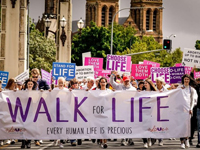 Legislation allowing gender-selection abortion and abortion up to birth is to be voted on in the South Australian parliament in coming days.
Legislation allowing gender-selection abortion and abortion up to birth is to be voted on in the South Australian parliament in coming days.
In light of this, the Party has written to all Lower House MPs whose 2-party preferred margin was less than Family First’s first preference result the last time the Party ran in their seats. How Members vote on this legislation will be of crucial importance when making preferencing decisions at the next State election due in March next year.
In marginal seats like Newland and King, we have said to first term MPs Richard Harvey and Paula Luethen that if they support this awful legislation, the Australian Family Party will preference against them. Newland and King wereFamily First heartland polling between 8.0 and 9.0 percent of first preference votes. Both MPs are on margins of under 2.0% so who gets elected will be very much down to preferences.
The Party is serious about this. We believe the lives of unborn children are precious and must be fought for.
Photo credit: Walk for Life Adelaide, 6 February 2021. Image by Mike Burton, The Advertiser.
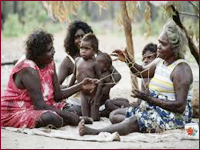 In her report ‘Worlds Apart’ released this week, Indigenous author Jacinta Nampijinpa Price analysed a wide range of data from locations and communities across Australia. Her report describes the vast difference between Indigenous communities and the rest of Australia when it comes to health and wellbeing, employment, education, crime, and domestic violence.
In her report ‘Worlds Apart’ released this week, Indigenous author Jacinta Nampijinpa Price analysed a wide range of data from locations and communities across Australia. Her report describes the vast difference between Indigenous communities and the rest of Australia when it comes to health and wellbeing, employment, education, crime, and domestic violence.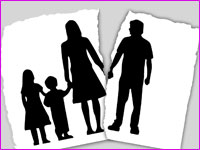 In its submission to the Federal Parliament’s Inquiry into the Family Law System, the Australian Family Association has recommended that couples who separate should have to wait two years instead of the current one year before filing for divorce (unless there is a history of domestic violence). This was described by News Ltd columnist Tory Shepherd this week as “wanting to drag marriage back into the dark ages”.
In its submission to the Federal Parliament’s Inquiry into the Family Law System, the Australian Family Association has recommended that couples who separate should have to wait two years instead of the current one year before filing for divorce (unless there is a history of domestic violence). This was described by News Ltd columnist Tory Shepherd this week as “wanting to drag marriage back into the dark ages”. 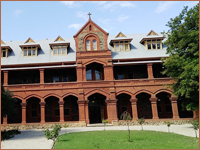 What is going on? The SA Liberals seem determined to undermine the rights of faith-based organisations. Last month, Deputy Premier Vickie Chapman proposed removing exemptions which allowed faith-based organisations to run their schools, hospitals and other services in accordance with their beliefs. Now Liberal Treasurer Rob Lucas wants to deny a Christian college its payroll tax exemption.
What is going on? The SA Liberals seem determined to undermine the rights of faith-based organisations. Last month, Deputy Premier Vickie Chapman proposed removing exemptions which allowed faith-based organisations to run their schools, hospitals and other services in accordance with their beliefs. Now Liberal Treasurer Rob Lucas wants to deny a Christian college its payroll tax exemption. In 1967 Dionne Warwick recorded the hit song, ‘I Say A Little Prayer For You’. Fast forward to 2020 and the Victorian Government is proposing to make it a criminal offence to say a little prayer with someone about their gender identity. This gives rise to all manner of implications. It reminds me of the story of the small-town Texas liquor store which was in the process of building an extension to its premises. The local church, in response, started an around-the-clock prayer meeting to try to stop it. Work continued on the project right up until the week before its opening when lightning struck the building and it burnt to the ground.
In 1967 Dionne Warwick recorded the hit song, ‘I Say A Little Prayer For You’. Fast forward to 2020 and the Victorian Government is proposing to make it a criminal offence to say a little prayer with someone about their gender identity. This gives rise to all manner of implications. It reminds me of the story of the small-town Texas liquor store which was in the process of building an extension to its premises. The local church, in response, started an around-the-clock prayer meeting to try to stop it. Work continued on the project right up until the week before its opening when lightning struck the building and it burnt to the ground. It was GK Chesterton who said, “Throughout the ages we have spoken about having the courage to die; now we have descended into talking about having the courage to live.”
It was GK Chesterton who said, “Throughout the ages we have spoken about having the courage to die; now we have descended into talking about having the courage to live.”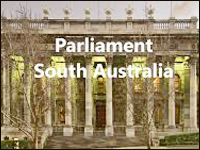 The rights of faith-based organisations are about to be seriously eroded. Led by Deputy Premier Vickie Chapman, the SA Liberal Party is proposing to remove exemptions which have allowed faith-based organisations to run their schools, hospitals and other services in accordance with their beliefs. This is what happens when there is no conservative alternative in the parliament to block these leftist policies. For those advocating ‘joining the Liberal Party and changing it from within’, this theory has now been totally debunked. It doesn’t work. The only way, I repeat, the only way to stop them is to take seats from them, either directly in the Upper House as Family First did from 2002 to 2018, or in the Lower House, through preferencing. If we are serious about protecting the rights of faith-based organisations then we need to act.
The rights of faith-based organisations are about to be seriously eroded. Led by Deputy Premier Vickie Chapman, the SA Liberal Party is proposing to remove exemptions which have allowed faith-based organisations to run their schools, hospitals and other services in accordance with their beliefs. This is what happens when there is no conservative alternative in the parliament to block these leftist policies. For those advocating ‘joining the Liberal Party and changing it from within’, this theory has now been totally debunked. It doesn’t work. The only way, I repeat, the only way to stop them is to take seats from them, either directly in the Upper House as Family First did from 2002 to 2018, or in the Lower House, through preferencing. If we are serious about protecting the rights of faith-based organisations then we need to act. The primary aim of the Australian Family Party is to put the family at the centre of every conversation. Recent media reports about Australian SAS troop actions in Afghanistan have drawn widespread attention culminating in calls for the service medals of those who served and died be taken from their families. The Australian Family Party strongly opposes this. In a ‘Letter to the Editor’ which was published in the Adelaide Advertiser on 28 November 2020, Australian Family Party Federal Director Bob Day said the following:
The primary aim of the Australian Family Party is to put the family at the centre of every conversation. Recent media reports about Australian SAS troop actions in Afghanistan have drawn widespread attention culminating in calls for the service medals of those who served and died be taken from their families. The Australian Family Party strongly opposes this. In a ‘Letter to the Editor’ which was published in the Adelaide Advertiser on 28 November 2020, Australian Family Party Federal Director Bob Day said the following: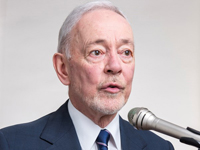 Introduction
Introduction